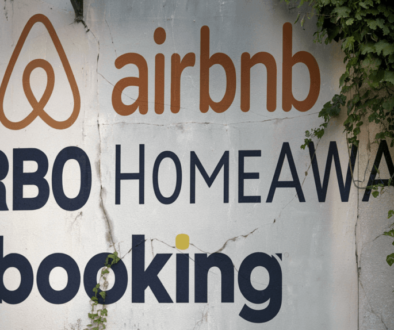7 Shocking Airbnb Legal Red Flags You Didn’t See Coming
Welcome to the wild, wacky world of Airbnb hosting! Once upon a time, tossing an air mattress in your living room and calling it a “unique experience” was all it took to make that sweet, sweet side hustle dough. But let’s be real: nowdays, hosting is no longer just about cute throw pillows and Insta-worthy decor. Nope! It’s become a full-blown operation with more legal jargon than you’d find in a courtroom drama. Are we feeling the pressure yet? Because if you’re thinking about entering this glittery realm of potential extra income, you might want to bring along some legal armor—or at least familiarize yourself with the Airbnb legal requirements that come with the territory!
Behind that dreamy facade of extra cash flow and meeting interesting travelers lies a trapdoor filled with Airbnb legal red flags so big they could take down a small elephant (yes, I said it!). From zoning regulations that can turn your cozy oasis into an illegal hideaway faster than you can say “Airbnb,” to those pesky homeowner association rules that feel like they were written by Grumpy Cat himself—trust me when I tell you this journey comes with more risks than trying to use public transport during rush hour! Ready for some serious “aha!” moments?
7 Airbnb Legal Red Flags Hosts Miss: Protect Yourself from Legal Issues
Let’s dive into these seven unexpected legal pitfalls every aspiring host should keep on their radar before stepping foot onto the big stage of short-term rentals. Grab your popcorn; it’s about to get real!
Red Flag #1: Unlicensed Hosting? Yikes!
So, you’re dreaming of cashing in on that spare bedroom or your cozy little studio while sipping artisanal coffee and pretending to be a travel mogul. But hold up! Before you bust out the “Welcome” mat and crank up that playlist of tropical beats, let’s chat about local regulations and permits because, spoiler alert: ignorance isn’t bliss! Cities are like well-meaning parents—strict with curfews and full of rules. Most places require hosts to register their rental as a business, get specific licenses, or even undergo inspections. Think of it like adulting in a sparkle castle; there are lots of shiny things but also some serious responsibilities lurking around.
Now, you might be thinking, “It can’t be that strict!” Oh honey, buckle up because the fines for unlicensed hosting can put a serious dent in your vacation budget (bye-bye Margot’s dream trip to Bali). Some cities impose penalties so hefty they could make even the hardiest home flipper break out into a cold sweat. Imagine getting slapped with a fine that’s more expensive than your trendy cactus décor all because you thought “who’s gonna notice?” Well newsflash—your neighborhood watch will definitely notice if they see vagrants partying like there’s no tomorrow on TikTok from your living room!
The moral of the story? Research before you wreck yourself! Scope out your local laws like it’s a scavenger hunt. Visit city websites or wander down to city hall and ask all those questions that pop into your head (remember, there’s no such thing as a dumb question… unless you’re asking how to bake lasagna during cooking class!). Being a responsible host is not just about providing killer amenities; it’s about leaving behind the tantalizing drama of avoidable legal trouble. Get licensed, stay cool under pressure, and keep those dreams alive without turning them into costly nightmares!
Red Flag #2: Zoning Regulations Gone Awry
Alright, party people! So you’ve got your Airbnb listing all set up—photos are sparkling, the Wi-Fi is faster than a cheetah on rollerblades, and you’ve stocked a few artisanal snacks to impress. But before you start booking guests like there’s no tomorrow, let’s talk zoning laws. Yep, those pesky regulations that can turn your cozy rental into an illegal operation faster than you can say “Oh no!” Knowing what you can and can’t do in your neighborhood could save you from some serious headaches (and legal fees!).
Here’s the deal: not all neighborhoods are cool with short-term rentals. Some areas have strict zoning laws that see you renting out a room as more taboo than going to work in pajamas (gasp!). Imagine this: you’re enjoying your first guest who raves about how cute your place is, but boom! A zoning officer shows up at your door because someone reported all those “visiting friends” on social media. Next thing you know, you’re being slapped with fines or worse—evicted! Let’s just say it doesn’t exactly make for a charming Airbnb experience.
It gets even juicier; some cities have specific rules based on property type. Own a condo? Congrats—you might need permission from your homeowners’ association. Renting a single-family home? Double-check if your neighbors are cool with toga parties every weekend—or risk them becoming your new best friends… in the court system. Seriously though, getting familiar with local restrictions not only helps keep those red flags at bay but also gives peace of mind when welcoming guests into what should be your happy little haven!
So while brainstorming ways to win over guests or designing the most Instagrammable nook might sound fun and all, don’t forget to pop open that zoning handbook too. It’s boring as heck compared to checking off cute bedding sets but trust us—being informed now could save you from nights spent picking out new living arrangements later. Trust us; you’ll thank yourself next time you avoid turning an idyllic getaway into another episode of “Law & Order: Airbnb Unit.
Red Flag #3: Strangers are NOT Always Friends
Alright, let’s face it—a cozy Airbnb isn’t just a space; it’s a playground for all sorts of wild antics. You might think you’re welcoming in polite travelers looking to enjoy the sights and sounds of your city, but beware! That “nice couple” could turn into a full-blown spring break reunion with their 20 closest friends and an all-night dance-off. Keeping track of guest behavior is paramount because that noise complaint from the neighbors will have you wishing you’d opted for a simple indoor cat over hosting entirely!
Screening guests isn’t just about checking IDs and ensuring they’re not running away from something (or someone). It’s about making sure your rental doesn’t morph into an episode of “Real World: Airbnb Edition.” A good screening process can save you future heartburn—so set those boundaries! Think “sorry, no plus-ones!” Imagine inviting a stranger to roam around your home like they own the place. No thanks!

Plus, remember that if a guest decides to host a rave at your place without prior consent—and that happens more often than you’d think—you might be on the hook legally. Find yourself facing neighborhood chaos during what was meant to be a relaxing weekend? Well, sorry buddy, but now you’re stuck dealing with angry residents who aren’t afraid to wield calls to local authorities. So keep your wits about you—it could mean the difference between smooth sailing or sinking under piles of headache-inducing drama.
Ultimately, creating clear guidelines and expectations in your listing helps keep everyone honest while also laying down some ground rules for potential guests. It may seem harsh at first—we get it—but think of it as practice for when you inevitably get roped into babysitting your friend’s kid who’s suddenly going through a phase where they’ll only eat purple food (thanks Chad!). Protect yourself and safeguard your shared space by being smart and vigilant—after all, not every stranger has good intentions!
Red Flag #4: Insurance? What’s That?
Alright, listen up, future Airbnb moguls! You’ve cleaned your space to a sparkling shine, stocked it with all the Instagrammable goodies, and maybe even invested in some cute throw pillows (because priorities). But hold on just a second—what about insurance? Yup, that handy dandy safety net can save your 🍑 when the unexpected decides to crash your hosting party. Trust us—insurance is not just a checkbox; it’s what stands between you and a financial fiasco worthy of its own Netflix drama.
Most basic homeowners’ or renters’ insurance policies are as helpful as a screen door on a submarine when it comes to short-term rentals. Negative guest experiences, like spilled wine or other accidents, can lead to expensive damages that might cost you hundreds or even thousands of dollars—not to mention those dreaded 1-star reviews! Picture this: those new friends you’ve made during their stay decide to host an impromptu rave—and by “rave,” we mean they invite half the neighborhood over for an evening of high-energy debauchery. When the cops show up uninvited and the chaos turns into damaged furniture, guess who’s footing the bill without proper coverage? Spoiler alert: it won’t be them!
So what’s a savvy host like yourself to do? It’s time to dive deeper into supplemental insurance options tailored specifically for short-term rentals—you know you deserve it! Several companies offer specialized policies designed for hosts that cover everything from property damage to liability claims. Think of it as adding another layer of protection; after all, safeguarding your home sweet home shouldn’t send shivers down your spine. Plus, armed with comprehensive coverage, you’ll sleep better at night knowing you’re prepared for whatever curveball life—or rather, unruly guests—might throw your way.
Remember: Having solid insurance is like carrying an umbrella on a sunny day—people might give you weird looks until that sudden downpour hits, and then they’ll be wishing they had one too! So don’t skimp out on those crucial preparations. Get insured properly so every guest experience remains filled with excitement and zero catastrophic mishaps—and keep those adorable throw pillows intact while you’re at it!
Red Flag #5: HOA Drama is Real!
So, you think you’re ready to dive into the fabulous world of Airbnb hosting? Well, pump the brakes, partner! One crucial thing on your checklist is scrolling through those homeowners’ association (HOA) rules like it’s a gripping novel—because spoiler alert: they *will* affect your ride. Depending on your building or community’s regulations, listing your place could lead to chaos that rivals any reality TV show you’ve ever seen! Picture this: You get a notification about a fine for violating one of those notoriously long and boring HOA documents because somebody had the audacity to park in visitor space—and guess what? That someone was *you*! 🤦♂️
Before unleashing your charming property onto the unsuspecting public, take some time to decode those HOA guidelines. Trust me; it’s way more fun than sorting through junk mail! Some communities have strict rules against short-term rentals. Suddenly that cute little weekend getaway you planned becomes an HOA nightmare where you’re left dodging fines faster than dodging exes at a party. No one wants to be known as “that” neighbor who brought down property values with an army of loud tourists!
But wait, it gets better (or worse). If you ignore these rules or try to sneak in a late-night rental without telling anyone, brace yourself for some serious drama. We’re talking angered board members ready to issue hefty fines or even lawsuits if they feel you’re breaking protocol. It’s like finding out that the plot twist in your favorite telenovela has made its way into real life! You thought being an Airbnb host would be all sunshine and cupcakes? Well, some unexpected email threats from the board might just ruin your vibe quicker than a surprise fire drill during naptime.
So do yourself a favor: grab that big mug of coffee, curate a playlist titled “Rule-Following Jams,” and make sure you know every detail before hitting ‘list’. By understanding your HOA’s stipulations beforehand—you’ll save yourself from future heart palpitations and keep your hosting dreams alive without those pesky “surprise!” emails landing in your inbox. Stay savvy; stay educated—a drama-free host is always in style!
Red Flag #6: Short-Term Rental Taxes Are No Laughing Matter
So, you’re riding high on the excitement of hosting your first guests. You can almost hear the cash register ringing! But hold up – before you start planning that dream vacation with your newfound earnings, let’s talk about a little something known as taxes. Yep, those pesky short-term rental taxes are lurking around the corner like a raccoon at a picnic, ready to scavenge your profits if you’re not careful. Each state and city might have different tax regulations regarding short-term rentals—there’s no one-size-fits-all solution here.
First things first: research is your BFF. Understand which local and state taxes apply to your hosting gig. Some areas require you to collect a transient occupancy tax (TOT) from guests, while others might add their own flair with special levies for short-term rentals. Ignoring these could lead to hefty fines or worse—unexpected visits from tax officers who aren’t nearly as fun as your guests! Keeping thorough records of all bookings will save you mountains of headaches down the line, and hey, it’ll make filing your taxes less of an adventure in despair!
Now, onto staying organized because we know how wild things can get when it’s time to reconcile accounts! A simple spreadsheet tracking income and expenses goes a long way in making sure Uncle Sam doesn’t find any hidden surprises come tax season. Apps tailored for hosts can simplify this whole mess too; think of it like having a mini-accountant in your pocket who’s way less judgmental about late-night taco runs! By keeping everything tidy and fighting fit financially, you’ll be prepped for whatever fiscal flamethrower nature throws at you.
And remember: just because it’s “just” listing on Airbnb doesn’t mean it escapes the IRS radar. Take care of business up front so you don’t find yourself saying “But I thought this was just fun money!” while staring shocked at that audit notice popping up in your mailbox. So roll up those sleeves and get cozy with some good ol’ financial preparation because when tax time rolls around, you’ll want to be strutting into April like a boss instead of running out the back door screaming “I’m being audited!” Tax savvy equals being smart—now go rock that rental game responsibly!
Red Flag #7: Guest Complaints Can Bite Back
Guest complaints can be more than just a minor inconvenience; they can escalate into full-blown legal issues that bite back with financial repercussions. While many hosts take the feedback as constructive criticism, one unhappy guest can trigger a chain of issues—think negative reviews, claims for refunds, or even disputes leading to legal action. In an era where online reputation is crucial, one bad review can tarnish your listing and impact future bookings dramatically.
Additionally, Airbnb’s policies often lean towards protecting guests, meaning that hosts could be left with the short end of the stick. If you find yourself facing invalid complaints or unfounded accusations—from property damage to unauthorized guests—you may have little recourse if not properly documented and handled upfront. Building strong communication channels with your guests before issues arise is essential; after all, preemptive measures are your best defense against potential grievances spiraling out of control. Stay vigilant and ensure you understand both local laws and Airbnb’s terms so that when the worst happens, you’re not caught off-guard.
What If Things Go South?: Knowing Your Rights and Responsibilities
So, you thought the hardest part of becoming an Airbnb host was taking *that* perfect photo of your space that makes even the shabbiest couch look bougie? Well, buckle up, buttercup! Things can get a little tricky. That’s why it’s crucial to familiarize yourself with the great (and sometimes scary) world of rights and responsibilities before you hit “list.” First stop: the infamous Airbnb Host Guarantee program. You might have heard the phrase tossed around like confetti at a party, but here’s where things get juicy—what does it actually cover? Spoiler alert: it ain’t all rainbows and sunshine. While it promises coverage up to $1 million for eligible damages to your property caused by guests, there are loopholes bigger than that hole in your favorite pair of jeans. So, always read the fine print because relying solely on it might leave you feeling more “meh” than “million-dollar host.”
Now just in case things REALLY go south—like, say, someone throws a wild rager or decides to use your bathroom as their personal art studio—you need to know when it’s time to bring in the legal eagle. We’re talking about consulting a lawyer without having to sell a kidney! Sure, some people try DIY legal advice from Reddit forums or those questionable TikTok videos (yikes), but trust us: this is one area where you want an expert on speed dial. Many lawyers offer free consultations or affordable rates specifically for small business woes—think of them as your superhero sidekick ready to swoop in with real-world solutions rather than hashtags.
Pro tip: Document everything! Keep notes from interactions with guests and any incidents that occur during their stay because evidence is sexier than any post on Instagram. And just remember that next time someone tries to turn your place into Party Central; you’ll already be one step ahead. If they dare file claims against you later on—that paperwork won’t stand a chance against your organized digital fortress! Now there’s no reason for panic—we’re only sharing so much sass here to ensure you’re not left floundering like last week’s leftovers!
In conclusion—being savvy about what could go wrong makes you not only a prepared host but also an informed one. Knowledge isn’t just power; it’s also allows you peace of mind while sipping coffee (or whatever else tickles your fancy) as guests come and go from your lovely abode! Armed with handy tips about rights and responsibilities—and perhaps even some trusty legal counsel—you’ll be well-equipped for anything life (or hosting!) throws at you!
Stay Alert to Stay Safe!
Well, there you have it, fellow future Airbnb moguls! You’ve just unlocked the ultimate cheat sheet to avoid those pesky legal nightmares that could turn your side hustle into a horror show. Remember these seven red flags—from unlicensed hosting to guest complaints—they’re lurking around every corner like overzealous paparazzi at a Hollywood party. Don’t let ignorance lead to regrets; keep your eyes peeled and stay informed! 🌟
So before you roll out that welcome mat, make sure to double-check your local regulations, stock up on insurance knowledge, and put on your host hat like it’s a crown fit for royalty. Because let’s be real: a savvy host is a safe host, and safety is always in style! Now go forth, be fabulous, and may your hosting adventures be as fun as they are legal—cheers to avoiding legal drama!



